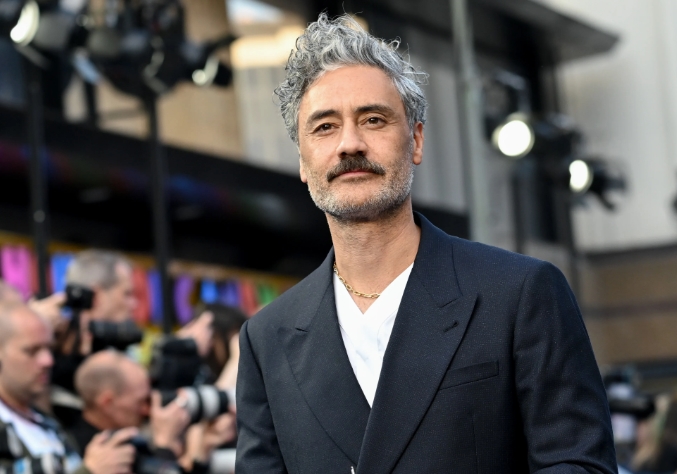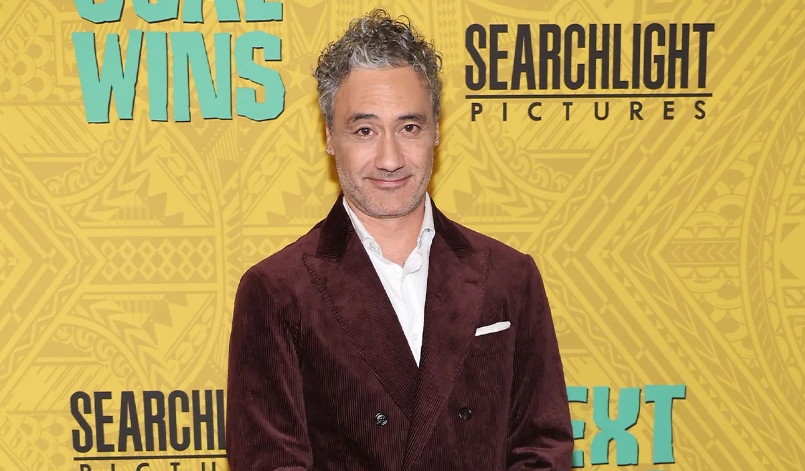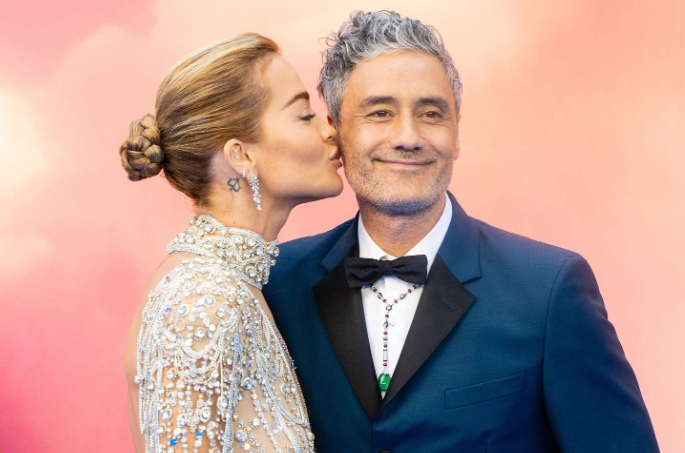

Taika Waititi is a New Zealander filmmaker, actor, and comedian. He is famous for his direction of films such as "Boy" (2010), "What We Do in the Shadows" (2014), "Hunt for the Wilderpeople" (2016), "Thor: Ragnarok" (2017), and "Jojo Rabbit" (2019). Among his acclaimed short films is "Two Cars, One Night" (2004), which earned an Academy Award nomination for Best Live Action Short Film. Beyond directing, he is recognized for his versatile roles, including portraying an imaginary version of Adolf Hitler in "Jojo Rabbit" and lending his voice to the character IG-11 in the space western web TV series "The Mandalorian" (2019–present). "Next Goal Wins", directed by Taika Waititi, disappoints as it squanders the talent of star Michael Fassbender in a formulaic and one-note sports drama that fails to capture the director's earlier infectious passion and humor. His diverse talents have contributed to his significant impact on the global film landscape.
Taika Waititi, the renowned New Zealand filmmaker, is best known for his directorial works including "Boy", "What We Do in the Shadows", "Hunt for the Wilderpeople", "Thor: Ragnarok", and "Jojo Rabbit". He is known for directing quirky comedy films and has expanded his career as a voice actor and producer on numerous projects. In television, Waititi co-created and executive produces the dramedy series Reservation Dogs, and directs, executive produces, and stars in the comedy Our Flag Means Death.
Taika Waititi was born on August 16, 1975, in Wellington, New Zealand. Taika David Cohen is his birth name. He holds New Zealand nationality and belongs to a mixed ethnicity, of Maori and European-Jewish descent. Born to his father Maori Waititi, a Te Whanau-a-Apanui painter, and his mother Robin Cohen, a school teacher, Waititi uses his mother's surname, "Cohen," for some of his creative endeavors in film and writing. Following his parents' divorce when he was around five, he was primarily raised by his mother. For his education, Waititi attended Onslow College and pursued theater studies at Victoria University of Wellington, graduating with a Bachelor of Arts in 1997.

Taika Waititi is a successful director, producer, screenwriter, actor, and comedian. As of 2024, his estimated net worth stands at $16 million, primarily derived from his successful career in directing, acting, and screenwriting, with an annual salary exceeding $2 million. His commercially triumphant films, including "Thor: Ragnarök" and "Hunt for the Wilderpeople," have significantly contributed to his wealth, affording him a lavish lifestyle. Meanwhile, his wife, Rita Ora, has a substantial net worth of $30 million as of 2023.
Taika Waititi married his second wife, Rita Ora, in August 2022, with rumors initially circulating about their intimate wedding ceremony in London. Rita Ora is a British singer and songwriter by profession. The couple's relationship became public in May 2021 when they were first rumored to be dating, confirmed after being seen together in Sydney later that month and making their official appearance at Rita Ora's 4th of July party. Their relationship further flourished, marked by their inaugural red-carpet appearance at The Suicide Squad premiere in August 2021. As of now, the duo is enjoying their present life a lot.

Prior to his marriage to Ora, Waititi was in a decade-long relationship with New Zealand actress and writer Loren Horsley. He had previously married New Zealand film producer Chelsea Winstanley in 2011, and they share two daughters, Te Hinekāhu and Matewa Kiritapu. Unfortunately, Waititi and Winstanley separated in 2018.
Taika Waititi, the handsome director and filmmaker, has a perfect height of 6 feet and a well-proportioned weight of 75 KG. He has a pair flight brown eyes. His distinctive features include tousled, wavy hair that often takes on a salt-and-pepper coloration, enhancing his charismatic look. Adding to his charm, Waititi frequently sports a beard or mustache, further contributing to his unique and recognizable style. His affable smile serves as a signature aspect of his persona, completing the overall appeal of this handsome and talented individual. He has got a healthy body as of now.
Taika Waititi's last name is not originally Waititi. After his parents' separation, he adopted his mother's last name, Cohen, for legal purposes. While studying theater at Victoria University of Wellington, Waititi engaged in various creative pursuits, including photography, writing, and acting. According to an interview with Cultural Daily, he used both last names throughout his life, choosing Cohen for writing projects due to his mother's influence in writing, but ultimately adopting Waititi for his career, influenced by the success of a short film made under that name.
Taika Waititi, known for his contributions to cinematic universes, has expanded his involvement beyond the MCU to the Star Wars franchise. Initially joining the Disney+ show "The Mandalorian" to direct the series finale, he also lent his voice to the character IG-11 in the series. In 2020, it was announced that Waititi would write and direct an upcoming Star Wars film. Although details about the project remain limited, fans are eagerly anticipating Waititi's creative impact on the cherished Star Wars universe.
Waititi contributed to the script of "Moana," a significant Disney film that aimed to represent Polynesian culture. With Polynesian actors, including Auliʻi Cravalho and Dwayne Johnson, the movie sought to broaden cultural diversity. As a Polynesian filmmaker, Waititi joined the project as a writer, working on a script that aimed for a more accurate portrayal of Polynesian families and gender dynamics. Despite his efforts, Waititi's screenplay did not receive approval for production from the studio, highlighting challenges in achieving authentic representation in Hollywood.
Taika enjoys making cameo appearances in his films, showcasing his versatility as an actor and comedian. Renowned in his native New Zealand, he gained global recognition through roles such as a vampire in "What We Do in the Shadows," which he co-directed, an imaginary Hitler in "Jojo Rabbit," a film he also directed, and the voice of Korg in "Thor: Ragnarok," a character he portrayed with ad-libbed brilliance. His memorable performances contribute to his growing international acclaim, leaving audiences eager for more from this multi-talented filmmaker.